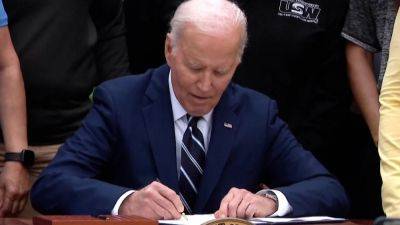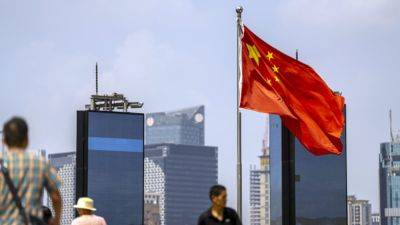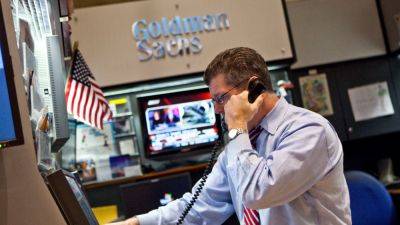British luxury icon Burberry dropped from UK's FTSE 100 stock market index
LONDON — British luxury fashion house Burberry Group dropped out of the U.K.'s FTSE 100 stock market index on Wednesday, as waning sales and a slew of management changes have added to the mounting pressures facing the 168-year-old retailer.
The company slipped into the FTSE 250 during September's quarterly rebalancing, index provider FTSE Russell said in a statement, bringing its 15-year run in the U.K. large-cap FTSE 100 blue chip index to a close.
The changes will be implemented at the close of trade on Sept. 20 and will take effect from Sept. 23.
The relegation deals a fresh blow for Burberry, whose share price has suffered a precipitous decline over recent months as the brand has fallen out of favor with consumers amid a wider slowdown in the luxury market.
The stock is down more than 53% so far this year and around 70% lower over the last 12 months.
The company's current market cap of £2.34 billion ($3.06 billion) now puts it well below the other constituents of the FTSE 100, as well as some of the top performers in the FTSE 250. As such, funds that invest in the FTSE 100 will exit their Burberry holdings.
Burberry's struggles long predate the recent share price declines.
Founded in Basingstoke, England, in 1856 and listed on the London Stock Exchange in 2002, Burberry rose to international recognition with its signature collection of trench coats, handbags and its eponymous check print.
The luxury label's addition to the FTSE 100 in September 2009 was taken as a further mark of its enduring appeal and its resilience, even amid the Global Financial Crisis.
However, the gradual adoption of Burberry's iconic pattern by the British working class through the 1990s and 2000s dealt a heavy blow to the brand's high-end aesthetic —







